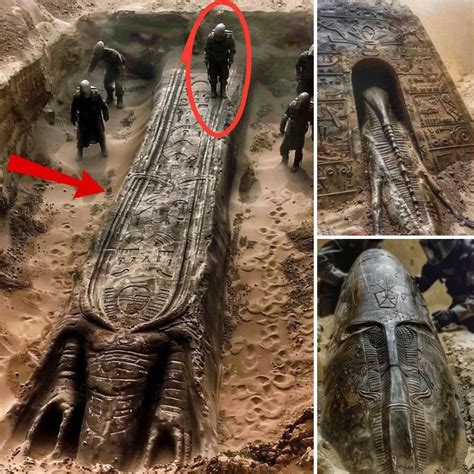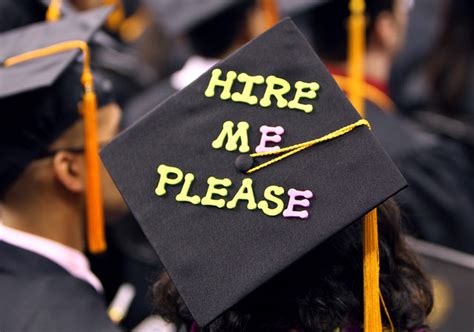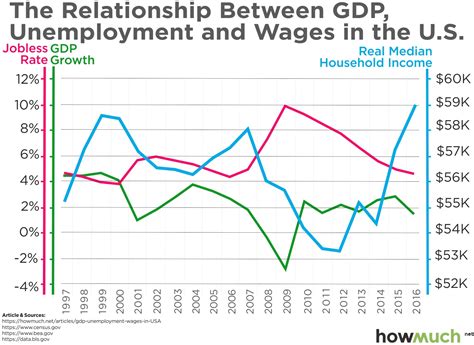
Italian Prime Minister Giorgia Meloni’s apparent eye roll during a brief exchange with French President Emmanuel Macron at the G7 summit in Apulia, Italy, has ignited a social media frenzy and fueled speculation about underlying tensions between the two leaders. The fleeting moment, captured on video and widely circulated online, occurred as Macron appeared to whisper something to Meloni, prompting what many observers interpreted as a dismissive reaction from the Italian premier. The incident has drawn attention to the complex relationship between Italy and France, particularly regarding differing views on key European issues.
The episode unfolded amidst a series of high-stakes discussions at the G7 summit, where world leaders gathered to address pressing global challenges ranging from climate change and economic stability to international security and artificial intelligence. While the official agenda focused on cooperation and consensus-building, the perceived friction between Meloni and Macron highlighted potential divisions within the alliance.
According to reports, the interaction took place during a break in the summit proceedings. While the exact content of Macron’s whisper remains unknown, speculation abounds regarding its possible subject matter. Some analysts suggest it may have pertained to ongoing disagreements over immigration policy, a particularly sensitive issue between Italy and France. Others have speculated it could relate to differing approaches to economic policy or geopolitical strategy.
The Italian Prime Minister’s office has not issued an official statement directly addressing the incident. However, sources close to Meloni have downplayed the significance of the moment, suggesting it was merely a fleeting reaction taken out of context. Supporters of Meloni have also taken to social media to defend her, arguing that she is being unfairly targeted by critics seeking to undermine her leadership.
Conversely, observers aligned with Macron have suggested that Meloni’s reaction reflects a broader pattern of skepticism and resistance towards European integration within her government. They argue that the incident underscores the challenges of forging consensus on key issues within the G7 framework, particularly when national interests and political ideologies diverge.
The incident comes at a time of heightened scrutiny of Meloni’s leadership, both domestically and internationally. Since assuming office in October 2022, she has navigated a complex political landscape, balancing her conservative agenda with the demands of governing a major European economy. Her relationship with other European leaders, including Macron, has been closely watched for signs of cooperation and conflict.
The “eye roll” incident is just the latest example of how even seemingly minor interactions between world leaders can become fodder for intense media scrutiny and public debate. In an era of social media and instant communication, such moments can quickly amplify existing tensions and shape public perceptions of international relations.
Background: The Italy-France Relationship
The relationship between Italy and France has historically been characterized by a mix of cooperation, competition, and occasional friction. Both countries are founding members of the European Union and share deep cultural and economic ties. However, they have also clashed on issues ranging from trade and agriculture to migration and foreign policy.
Under Macron’s leadership, France has sought to play a leading role in promoting European integration and strengthening the EU’s global influence. This vision has sometimes clashed with Italy’s more cautious approach, particularly under Meloni’s government, which has emphasized national sovereignty and advocated for reforms to EU policies.
One of the most significant areas of disagreement between Italy and France has been migration policy. Italy has long been a frontline state in dealing with irregular migration flows from Africa and the Middle East, and it has repeatedly called for greater solidarity from other European countries in sharing the burden of استقبال asylum seekers. France, along with other northern European countries, has often resisted calls for mandatory relocation quotas, leading to tensions with Italy.
Economic policy has also been a source of friction between the two countries. Italy’s high levels of public debt and its struggles to implement structural reforms have raised concerns among its European partners, including France. Macron has at times publicly criticized Italy’s economic policies, prompting pushback from Italian officials who accuse France of meddling in their domestic affairs.
Despite these differences, Italy and France share a strong interest in maintaining a stable and cooperative relationship. Both countries are major players in the European economy and have a vested interest in preserving the integrity of the EU. They also cooperate closely on a range of security issues, including counter-terrorism and defense.
Meloni’s Rise to Power
Giorgia Meloni’s rise to power in Italy represents a significant shift in the country’s political landscape. As the leader of the Brothers of Italy party, which has roots in the post-fascist Italian Social Movement, she has become the first female Prime Minister in Italian history and the head of the most right-wing government since World War II.
Meloni’s political career began in her youth, when she joined the youth wing of the Italian Social Movement. She gradually rose through the ranks of the Italian right-wing, serving as a minister in Silvio Berlusconi’s government in the late 2000s. In 2012, she co-founded the Brothers of Italy party, which initially struggled to gain traction in Italian politics.
However, in recent years, the Brothers of Italy has experienced a surge in popularity, capitalizing on growing dissatisfaction with mainstream political parties and concerns about immigration, economic stagnation, and national identity. Meloni’s charisma, her strong nationalist message, and her ability to connect with ordinary voters have been key factors in her party’s success.
Since taking office, Meloni has sought to reassure Italy’s European partners that her government is committed to fiscal responsibility and to upholding its international obligations. She has also emphasized the importance of national sovereignty and has pushed back against what she sees as excessive interference from the EU in Italy’s domestic affairs.
Macron’s European Agenda
Emmanuel Macron has emerged as one of the most prominent and influential leaders in Europe in recent years. Since becoming President of France in 2017, he has championed a bold vision for European integration and has sought to position France as a leading force in shaping the future of the EU.
Macron’s European agenda is based on several key pillars, including strengthening the Eurozone, promoting a more assertive foreign policy, and addressing climate change and other global challenges. He has called for greater cooperation among EU member states in areas such as defense, security, and economic policy.
One of Macron’s signature proposals has been the creation of a Eurozone budget, which he argues would help to stabilize the currency union and provide resources for investments in areas such as innovation and infrastructure. He has also advocated for the establishment of a European army, which would complement NATO and allow the EU to respond more effectively to security threats.
Macron’s European agenda has faced resistance from some EU member states, particularly those who are wary of ceding more sovereignty to Brussels. However, he has succeeded in forging alliances with other like-minded leaders, such as former German Chancellor Angela Merkel, to push forward his vision for a stronger and more united Europe.
The G7 Summit in Apulia
The G7 summit in Apulia, Italy, brought together leaders from the world’s seven largest advanced economies to address pressing global challenges. The summit agenda included discussions on climate change, economic stability, international security, and artificial intelligence.
Climate change was a major focus of the summit, with leaders reaffirming their commitment to the Paris Agreement and discussing ways to accelerate the transition to a low-carbon economy. They also addressed the economic consequences of climate change and the need for greater investment in climate resilience.
The summit also addressed the global economic outlook, with leaders expressing concern about rising inflation and the potential for a slowdown in growth. They discussed ways to coordinate their economic policies to support sustainable growth and job creation.
International security was another key topic on the summit agenda. Leaders discussed the ongoing conflict in Ukraine, the threat of terrorism, and other security challenges. They reaffirmed their commitment to supporting Ukraine and to working together to counter terrorism and other transnational threats.
Artificial intelligence was a new addition to the G7 summit agenda this year. Leaders discussed the potential benefits and risks of AI and the need for international cooperation to ensure that AI is developed and used responsibly.
The “Eye Roll” Incident: A Deeper Analysis
While the “eye roll” incident may seem like a trivial matter, it has resonated with many observers because it reflects deeper tensions and dynamics within the G7 and the broader European context. The incident highlights the challenges of building consensus and cooperation among countries with different political ideologies, national interests, and policy priorities.
The fact that the incident occurred between Meloni and Macron is particularly significant, given their differing views on key European issues. Meloni’s skepticism towards European integration and her emphasis on national sovereignty stand in contrast to Macron’s vision of a stronger and more united Europe.
The incident also underscores the importance of nonverbal communication in international diplomacy. Even seemingly minor gestures and expressions can be interpreted as signs of disagreement, disrespect, or animosity. In an era of social media and instant communication, such moments can quickly go viral and shape public perceptions of international relations.
Some analysts have suggested that the “eye roll” incident may be a sign of a growing rift between Italy and France. However, others argue that it is simply a reflection of the normal tensions and disagreements that exist between countries with different interests and perspectives.
Regardless of its underlying causes, the “eye roll” incident serves as a reminder of the challenges of building trust and cooperation in a complex and rapidly changing world. It also highlights the importance of diplomacy, communication, and mutual understanding in navigating international relations.
The Role of Social Media
The rapid spread of the “eye roll” video on social media underscores the increasingly important role that these platforms play in shaping public opinion and influencing political discourse. The video, which was shared and commented on by millions of users around the world, quickly became a symbol of the perceived tensions between Meloni and Macron.
Social media can amplify existing tensions and create new ones. In this case, the video of Meloni’s “eye roll” provided ammunition for critics of both leaders and fueled speculation about their relationship.
However, social media can also be a tool for promoting understanding and dialogue. By providing a platform for diverse voices and perspectives, social media can help to bridge divides and foster greater cooperation.
Future Implications
The “eye roll” incident is unlikely to have a major impact on the overall relationship between Italy and France. Both countries have a strong interest in maintaining a stable and cooperative relationship, and they are likely to continue to work together on a range of issues.
However, the incident may serve as a reminder of the challenges of building consensus and cooperation in a complex and rapidly changing world. It also highlights the importance of diplomacy, communication, and mutual understanding in navigating international relations.
In the coming months and years, it will be important for Italy and France to find ways to bridge their differences and to work together to address shared challenges. This will require both leaders to be willing to compromise and to find common ground.
The future of Europe depends on the ability of its leaders to overcome their differences and to work together to build a stronger and more united continent. The “eye roll” incident serves as a reminder of the challenges that lie ahead, but it also provides an opportunity to learn from past mistakes and to build a more constructive and cooperative future.
Quotes from the source:
While the original Yahoo News article doesn’t contain direct quotes from Meloni or Macron regarding the specific “eye roll” incident, it alludes to the broader context of their relationship and political stances, which informs the interpretation of the event. The incident is largely based on visual interpretation and social media reactions rather than explicit statements.
Frequently Asked Questions (FAQ)
1. What exactly happened between Giorgia Meloni and Emmanuel Macron at the G7 summit?
The incident involves a video circulating online that shows Italian Prime Minister Giorgia Meloni appearing to roll her eyes after French President Emmanuel Macron whispered something to her during the G7 summit in Apulia, Italy. The content of the whisper is unknown, but the reaction has sparked speculation about tensions between the two leaders.
2. Why is this “eye roll” incident considered newsworthy?
While seemingly minor, the incident is considered newsworthy because it highlights the complex and sometimes strained relationship between Italy and France, particularly given their differing views on key European issues like migration, economic policy, and the role of the EU. It also reflects the intense scrutiny that world leaders face and how even fleeting moments can be amplified by social media.
3. What are the possible reasons for the perceived tension between Meloni and Macron?
Possible reasons include:
- Differing Political Ideologies: Meloni leads a right-wing government with a focus on national sovereignty, while Macron is a centrist who champions European integration.
- Migration Policy: Italy has been critical of France’s approach to handling migration flows, particularly regarding the relocation of asylum seekers.
- Economic Policy: Italy’s high public debt and economic reforms have been a source of concern for France and other European partners.
- Geopolitical Strategy: Differences in approach to international relations and the role of the EU in global affairs.
4. Has either Meloni or Macron commented directly on the “eye roll” incident?
Neither Meloni nor Macron has issued a direct statement specifically addressing the “eye roll” incident. However, sources close to Meloni have downplayed the significance of the moment, suggesting it was taken out of context. The lack of official comment leaves room for interpretation and speculation.
5. What are the potential implications of this incident for Italy-France relations and the G7 as a whole?
While the incident is unlikely to cause a major disruption in Italy-France relations, it serves as a reminder of the challenges of building consensus and cooperation among countries with different political views and national interests. It could potentially exacerbate existing tensions and make it more difficult to find common ground on key issues. For the G7, it highlights the complexities of navigating international relations when member states have divergent priorities.









